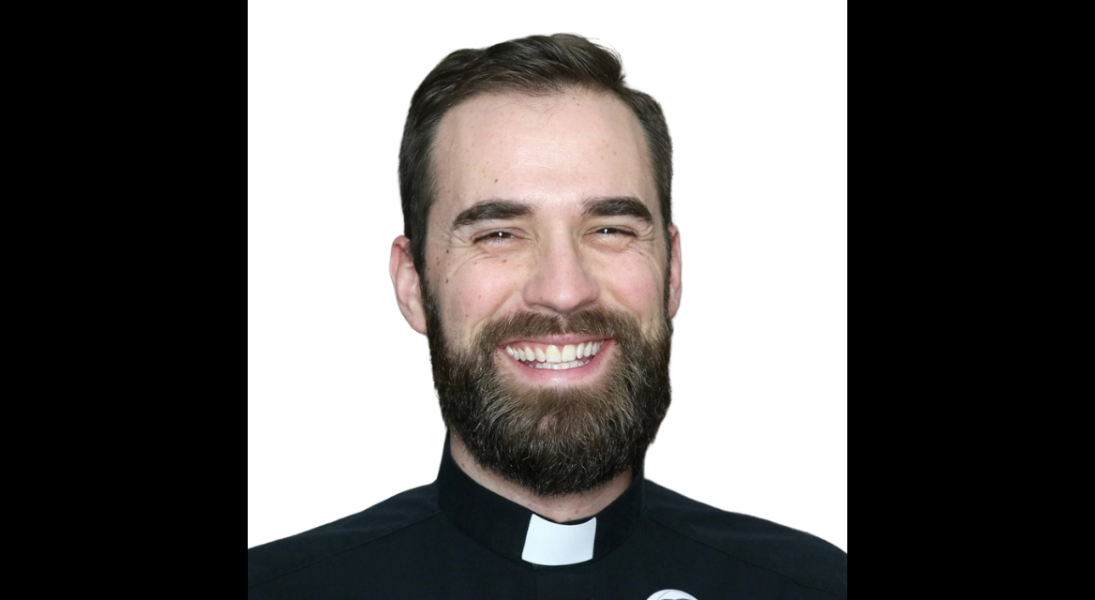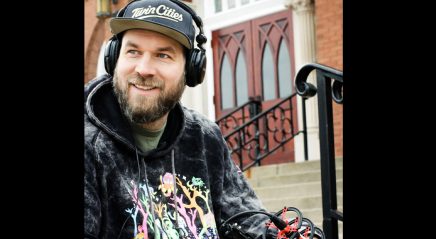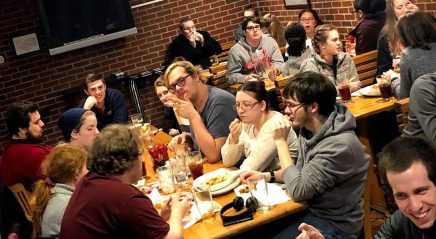Editor’s note: Paul Drees started posting to TikTok about his theological views in 2021. His videos have over 90 million views, and he has gathered more than 650,000 followers across platforms including TikTok, Instagram, YouTube and Facebook. Here, he shares his experiences and what he learned from navigating social media as ministry. Drees has served Mount Calvary (Trempealeau) and Tamarack (Arcadia) Lutheran churches in Wisconsin since 2024.
I never thought I would get into social media in my 30s. I figured once I passed three decades I’d get into woodworking, birdwatching or some other quiet hobby. However, I kept having the same wretched conversation. A friend would hear that I’m in seminary, or later serving as a pastor, and would explain their church trauma. Over the years I heard dozens of stories from friends about how church permanently scarred them.
I grew up in the ELCA and assumed other Christians heard the same message I did: God loves you as you are and gives you grace so you may serve your neighbor. Sadly, most of my friends didn’t hear that message. They heard about an angry God who was ready (and almost excited) to send them to hell.
When I turned to social media, I saw this harmful theology there as well. The Christian creators I found focused on a Christianity rooted in domination and hierarchy. They spoke of that angry God, whose wrath would rain down on whomever God deemed “sinner” that week. I was sick of having these conversations, of hearing such toxic theology. In the absence of grace-filled voices, people assumed that toxic Christianity was the only option available. I could see the space where someone needed to speak. Someone else, of course, better qualified than me.
So I waited. I waited through college, my first jobs and seminary, and I still didn’t find any progressive Christian voices. In 2021, in the middle of the pandemic, I finally felt desperate enough to talk about God’s love and call to justice on TikTok.
Lessons learned: Hungering for the gospel in a safe space
Much to my chagrin, people liked it. I quickly learned people are hungry for the gospel—they just don’t trust the church. In the early days of this new ministry, when I went live, hundreds of people would join, asking all sorts of questions I was never asked at church. They asked about Jesus, the Bible, grace, sex and other topics they were normally too scared to bring up.
I had served my first call for two years, and these random strangers on the internet were more comfortable asking me about Jesus than my congregation was. When I asked why, the answer became obvious.
People feel safe online. While it took years of building trust for my friends to share their church trauma, those who join me online don’t require that same depth of trust. They can ask me a question and leave quickly if they feel I’ve become cruel. They don’t have to worry about me mocking their questions in the community or feeling shame every time they see me. This might seem trivial, but my experience says otherwise.
Imagine a young queer person coming up to me after worship and asking what I thought about their queerness. If I disagreed with their identity, they may fear that I could out them to their parents, kick them out of church or hold a mock funeral for them (all actual experiences of my queer friends). Though we might not always recognize it, church leaders have immense power, and our members and youth respect and fear us. Trust takes years to build, especially if there is trauma in someone’s story. Once you’ve been burned, it’s hard to draw near to an open flame again.
Online, though, people are free to ask the questions they’ve quietly wrestled with. In my experience, these always come down to the same central wondering:
Am I loved? How could the Divine see beauty in me?
This is why I go live on TikTok for an hour a week. It’s the same reason I spend many hours on nights and weekends creating content when I’d much rather be reading about chivalric crests or how to keep bees. Much like the Good Shepherd, we’re called to find the lost sheep, not just open the paddock and hope sheep come back. If we want people to join us in the mission of following Christ, we must clearly explain to people why they should trust us, again and again.
To be clear, I don’t expect you to start posting on social media or going live weekly. I simply want to give you a word of liberation: people all across the United States are hungry for the gospel—they just don’t trust the church. Many carry scars from past encounters with the church, and healing takes longer than any of us would like. But Lord Almighty, what a feeling when we can say with boldness to the wounded: “God loves you as you are, and so do I.”










